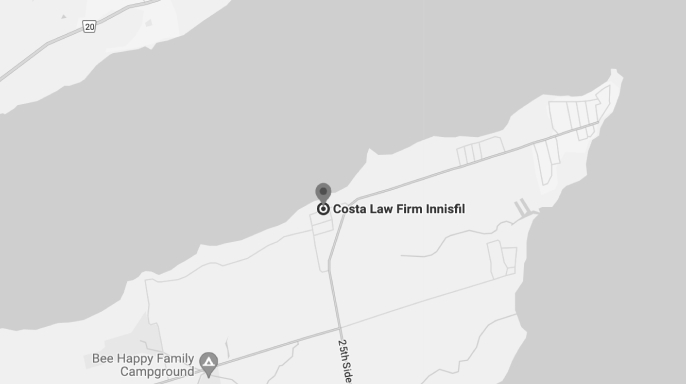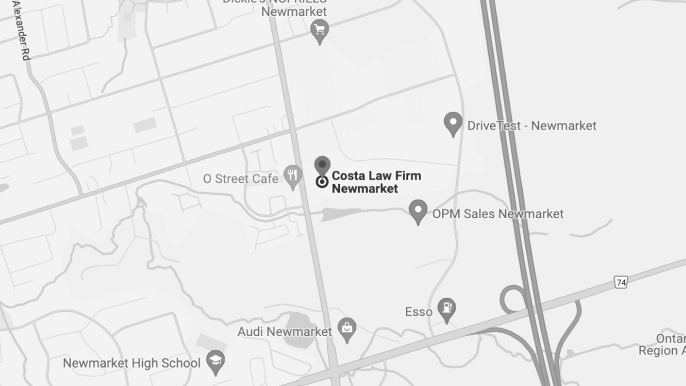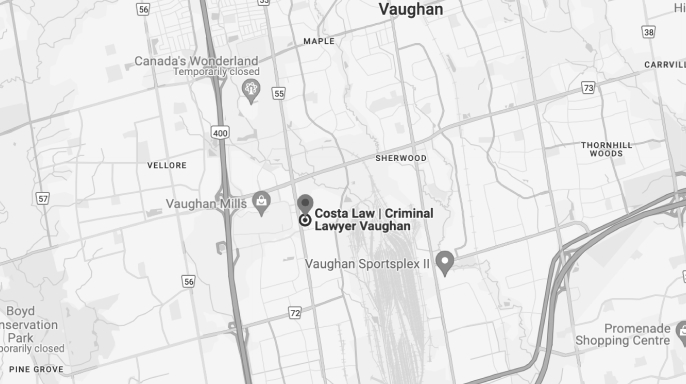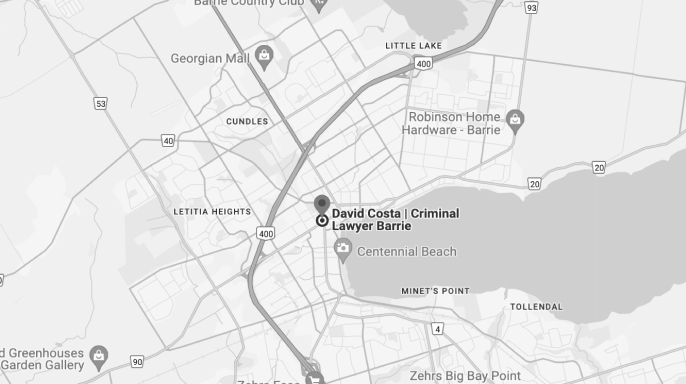You can count on us for legal representation
Defining Drug Offences
Under the Canadian Charter of Risks and Freedoms, drug offences refer to possession, trafficking, production, and/or importing of illegal substances.
To better understand each offence, it is a must to understand how drugs are ranked by schedule.
- Schedule I drugs are considered the most dangerous drugs, i.e. opioids and cocaine, and carry severe penalties.
- Schedule II, Schedule III, Schedule IV, and Schedule V drugs are softer drug classes and all carry milder maximum penalties.
Drug Possession
Most drug cases are related to possession. The maximum penalty for drug possession is up to seven years imprisonment.
Drug Trafficking
Drug trafficking, in criminal law, carries a maximum penalty of life in prison. Just as with other drug cases, for trafficking relating to Schedule II drugs, Schedule III, Schedule IV, or Schedule V drugs, a conviction will evidently be far less.
Drug Importing and Exporting
Drug imports and exports refer to the illegal transport or bringing of illicit drugs and substances into and out of Canada. This type of charge carries a maximum penalty of life in prison, just like with trafficking.
Drug Production
If you are found to be manufacturing and producing drugs, this also carries a maximum penalty of life in prison.
Understanding How Drug Cases Work in Ontario
In Ontario, drug laws fall under the federal CDSA, or Controlled Drugs and Substances Act. Under this law, the courts can either opt to pursue a drug charge as an indictable offence or a summary offence.
- A summary conviction often includes a fine and a maximum penalty of two years in jail.
- An indictable offence is much more serious and can carry not only fines but other repercussions, including up to life in prison.
Drug possession is a hybrid defence that can be brought to trial as either a summary conviction or indictable offence, based entirely on the type of illegal drug it is, its quantity, and whether the accused is being charged for the first time or not.
If you have been charged with possession of marijuana, cocaine, heroin, GHB, ecstasy or MDMA, magic mushrooms, ketamine, LSD, crystal meth, opium, or another type of illegal drug, a defence lawyer at Costa Law Firm may be able to help.
What Must Be Proven in Drug-Related Criminal Offences
In any sort of drug case in Ontario, several things must be proven in order to reach a guilty verdict.
Proving the Substance Is an Illegal Drug
The item in question must be legally defined as an illegal drug based on the Controlled Drugs and Substances Act.
This is often done by tendering into evidence an analysis from Health Canada that certifies the item was tested and verified as a narcotic. It is not enough evidence to have a police officer testify that the item resembled an illegal drug. It must be proven by analysis. In some cases, neglecting to file such a certificate may result in acquittal.
Proving Possession of the Illegal Drug
It must also be proven that the person charged possessed the illegal drug. To prove this, it must be demonstrated that the accused knew what the item was and had some measure of control over the item.
Just because a person has an illegal drug in their pocket does not actually establish possession if doubt can be raised on whether the person knew the drug was there or not.
It is worth noting that it does not matter if you owned the drug. Possession is not established based on whether an item belonged to the accused or was owned by another party.
As one can imagine, these areas are where a criminal defence lawyer can begin building a case.
Ontario Drug Charges by the Numbers
According to Statistics Canada, the criminal justice system in Ontario handles nearly 11,000 drug possession cases every year. Of these, more than three quarters are dropped before trial, however, this varies by region.
Drug charges in Ontario have been gradually falling from its high in the early 1980s wherein over 18,000 cases were processed annually.
Choosing a Toronto Criminal Defence Lawyer
An experienced criminal lawyer will work hard for their clients and ensure they obtain the best defence against what they are being accused of.
There are many ways we approach drug cases, from raising the argument that a defendant is not criminally responsible, to advocating for the court to accept a special plea, to not record the guilty decision, raise a Charter of Rights argument, or argue the accused is unfit to stand trial.
When you sit down for a consultation with a defence lawyer, they can advise on next steps and what the best case is to launch, whether that is to argue for acquittal, withdrawal, dismissal, discharge, or another approach.
What lawyer you choose matters a great deal in securing the most positive outcome. Through diligent legal manoeuvring, it may be possible to outright beat drug charges or to have drug charges dropped. It is the responsibility of the Crown to prove an individual is guilty. In most drug cases, there are a lot of hoops to jump through to advocate that a person is definitively guilty.
Let us do the work for you and employ any of several defence strategies to sow doubt on the Crown’s evidence and/or to have the charges proven demonstrably false.
What Trafficking Is and How to Prove It
Trafficking charges are one of the most serious felonies in the Criminal Code and can result in life imprisonment.
Drug trafficking is the sale of and possession of unauthorized drugs and/or illicit substances by others. How severe the punishment is for drug trafficking depends entirely on the classification of the drug trafficked, the amount smuggled, and whether this person has any prior crime in their past.
In order to convict on a trafficking charge, prosecutors must prove that the person had the intent to sell or distribute an illegal drug to others.
A number of factors are examined to determine if it can be a reasonable assumption that the person in possession of the drug had an intent to distribute.
- Quantity of the drug.
- Total monetary value of the drugs and if there was any amount of money found.
- Drug paraphernalia found.
- Statement of the accused.
- Known associations of the accused with drug traffickers.
- Unexplained wealth demonstrated by the accused.
Prosecutors have to be careful when pursuing trafficking charges in court. While a person can be arrested and charged for trafficking if a large amount of drugs was seized, it will not necessarily lead to a conviction in a trial if the only evidence is quantity. A person may receive a conviction for possession of an illegal substance but not necessarily trafficking if one is without additional evidence.
Understanding Actual Possession & Constructive Possession
Actual possession is when a person has drugs located on their person. Constructive possession is when a person has knowledge and control over where drugs are.
Both are criminal offences, even if constructive possession does not have you in physical possession of the drugs, such as if an illegal drug is found in the glove box of a motor vehicle you own and drive, or if an illicit substance is found inside the accused person’s bedroom.
There is also joint possession where an illegal drug is found shared between two or more persons. For example, if someone permits someone else to hide drugs inside their apartment and these drugs are found by police, it could result in a joint possession charge.
Defending Drug Possession Charges in Toronto
There are many ways to craft a successful defence against drug possession charges.
If the Crown Attorney cannot verify or has not verified that the item was an illegal drug, a lawyer can seek an acquittal.
If there was no established knowledge of having an illegal drug on one’s person, the said person cannot be found guilty of the offence.
An Illegal Search That Violates Your Charter Rights Is Wrong
Another way to defend in court drug possession charges is to argue that it was an illegal search by police.
Did police legally obtain the evidence required to establish proof of possession or did they ignore the accused’s Charter rights to be free from unreasonable police searches? If the accused was stopped and/or detained by police without a valid reason, their constitutional rights may have been violated resulting in evidence that the court may deem inadmissible at trial.
Alternatively, if the search was supported with a valid warrant, a criminal defence lawyer may argue that there was no reasonable basis for issuing the warrant. If probable cause is not evident or the warrant’s parameters were not followed, this suggests the resulting information culled from a search is not admissible.
If this argument is accepted, this would once again invalidate evidence presented in court from any such searches.
Defending Against Drug Production: Marijuana Grow Operations
Drug production in the form of an unlicensed marijuana grow operation is a major focus of Crown prosecutors and is a highly serious offence.
Mandatory minimum penalties for marijuana grow ops escalate according to the number of plants discovered and other aggravating factors. If this is the type of drug charge you are facing, seek legal advice immediately.
If there are more than 500 plants discovered, a person is looking at a minimum of two years or more in jail. If convicted and you are found guilty, the judge will have no choice but to impose this minimum regardless of the circumstances.
To defend against accusations relating to a marijuana grow op, it requires aggressive strategizing.
What to Expect in Penalties and Sentences for Drug Offences
It is up to a judge to impose a sentence on someone who receives a conviction for possession of a narcotic.
The circumstances around the offender must be looked at along with the reason for possession. Drug addicts are generally granted a little more leniency compared to someone who wants to sell drugs for personal gain.
In addition, someone who was found with hard drugs – cocaine, heroin, etc. – is more likely to receive a jail sentence compared to someone who was found with soft drugs, such as marijuana or hashish.
At the same time, it is also possible that for someone facing a minor drug charge, with the right defence lawyer, they can avoid a criminal record altogether and/or have their charge withdrawn depending on the case.
Many governments are quietly relaxing their approach to individuals caught with small quantities of illegal drugs and first-time offenders. This is not to say that there are not consequences, however, or that a first-time offender is guaranteed to avoid jail time. It depends entirely on the unique circumstances presented.
Under the Controlled Drugs and Substances Act, for certain drug offences, there are minimum sentences of imprisonment. They apply when there are one or more aggravating factors, such as if there was organized crime involved, use or threat of violence, use or threat of use of a weapon, if it is someone who was previously convicted of a serious drug offence, if it is an abuse of authority or involved access to a restricted area such as a school, if it involved commissioning a youth, or if it was selling to a youth.
Consequences of Drug-Related Criminal Offences
If you are convicted in Canada of a drug-related crime, this is registered as a part of your criminal record. This may limit your ability to travel to countries such as the U.S. or the UK.
A criminal record will also affect future employment, with hiring departments and companies less enthusiastic about hiring someone who has a prior conviction relating to an illegal drug.
There is also the matter of substantial jail time if you are found guilty.
Hire a Top Criminal Defence Lawyer With Experience in Drug Crimes
The legal team at Costa Law Firm are criminal law experts and we work tirelessly for our clients. Our chosen profession is to ensure your Charter rights are respected and that the letter of the law is followed. We regularly successfully defend people charged with serious drug offences, from basic possession of controlled substances and personal use cases to trafficking activity and more.
If you are facing criminal charges, do not let the Criminal Code support a prosecutor’s wishes unchecked. Receive the support and guidance you need from lawyers skilled in overcoming maximum sentence arguments and mandatory minimum penalties. If you are overwhelmed, fearful, frustrated, or unsure of how to move forward when facing a drug-related criminal offence, let us help.
We will conduct a thorough review of each case and the evidence presented by the Crown. This examination can aid in identifying errors or shortcomings that can be used to your advantage and find weaknesses in the overall case against you.
Do not go to court and face a trial alone. Hire a drug law expert to act as your criminal defence lawyer today.
Reach out to the team at Costa Law Firm for more information on how to move forward facing drug-related criminal charges.
FREE Case Evaluation
or Call Us: (416) 535-6329
What our clients are saying
Testimonials
Contact Us
FREE Case Evaluation
or Call Us: (416) 535-6329
Costa Law Firm
Costa Law Firm is a law firm located in Toronto with exceptional credentials that stands out for its commitment to client service. Our service minded approach has led Costa Law Firm to be one of the most reliable law firms in Toronto.
Address
Main Office:
1015 Bloor Street West, Toronto, Ontario M6H 1M1
Phone: (416) 535-6329
Fax: 416-535-4735
info@costalawfirm.ca
We provide emergency services for urgent matters.
Consultation Office:
17075 Leslie St Unit 6, Newmarket, ON L3Y 8E1Vaughan location 290 Caldari Rd Unit 8, Concord, ON L4K 4J4, CanadaBarrie location 49 High St 3rd floor, Barrie, ON L4N 5J4, Canada














